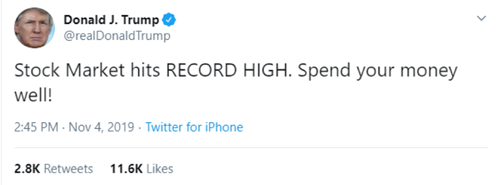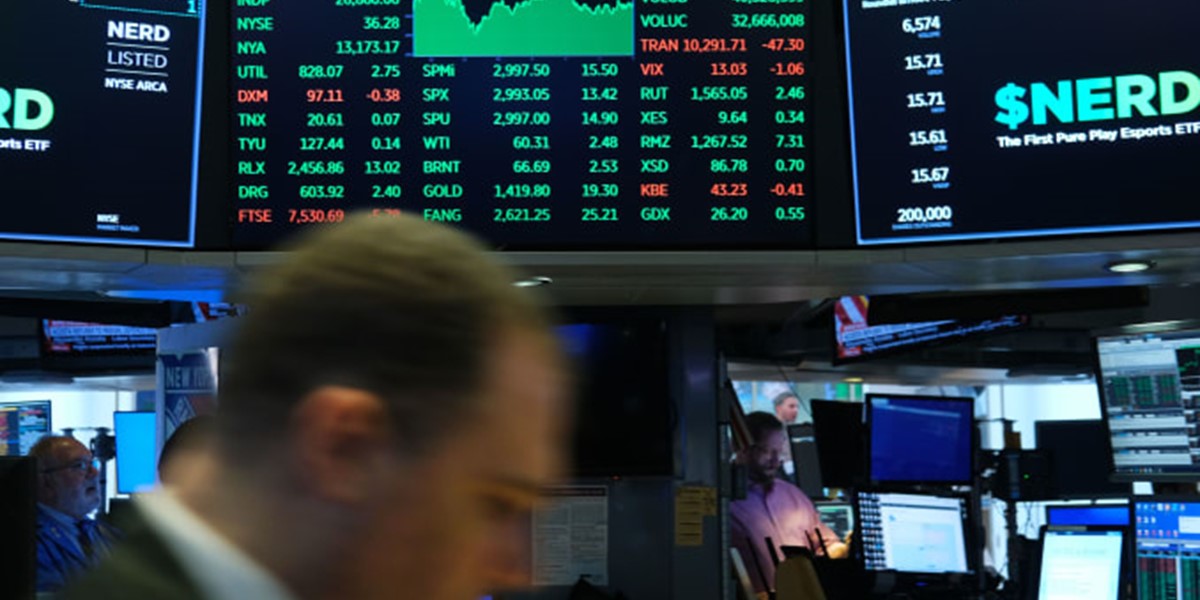Passive investment and gigantism in the tech sector: a dangerous cocktail?
Microsoft, Apple, Amazon, Alphabet (the holding above Google) and Facebook are the largest companies in the United States. They have a combined market capitalisation of no less than 4.5 billion US dollars.
These companies are obviously going to picked up by passive investors. Popular index products such as the SPRD S&P 500 and the QQQ Trust from Invesco, which tracks the Nasdaq-100, have a disproportionately large weighting in the technology sector.
To put the enormity of these tech giants into perspective, it's worth knowing that Microsoft and Apple, which are together valued at 2.1 billion dollars, are almost as big as the entire market capitalisation of all of the businesses (!) in the American small-cap index, the Russell 2000. This ratio has certainly followed a lopsided development path, as various studies show that the largest companies in the S&P 500 usually have a collective market capitalisation that amounts to around 50% of that of the Russell 2000 index.
Dominant
These mega caps are businesses that have expanded to become the most significant and dominant in the world. They are exceptionally disruptive and can attract an entire market. From the viewpoint of an investor, it is therefore only right that they have established a global status and the share prices have risen stratospherically.
Gigantism in the tech sector, however, is not restricted to the US. As our founder and CEO Geert Noels wrote in his book Gigantism on page 25: ‘The markets in 2019 will be dominated worldwide by technology companies. The US and China will share the top twenty; the biggest will be American and the rest will be split. This means that the Asian super-power has similar tech giants as the US. For every Amazon, you’ll find an Alibaba; for every Apple, a Xiaomi. Alibaba and Tencent, in particular, have a market capitalisation which is comparable to their American counterparts. The 6 biggest American tech giants are the same size as the 94 subsequent American technology firms added together... This is an impressive size but also points to exceptional concentration.’
The combination of all-encompassing gigantism in this sector and blind buying in passive investment products could, however, turn out to be dangerous if everybody wants to head for the exit. Businesses such as Amazon.com, Apple and Alphabet have generated huge profits from flows to passively managed ETFs. Investors are once again euphoric and have forgotten that the indices are driven by a limited club of super-companies. President Trump can hardly contain his euphoria:

Better active
At Econopolis, we want to warn you about uninhibited optimism regarding the tech giants. They are, without doubt, very attractive companies, but the valuations have increased substantially and the automated purchases via passive funds are made by investors who don't pay much attention to the fundamentals.
But should we throw the baby out with the bath water and avoid the sector altogether? Not at all. As you know, we are active investors and take a bottom-up approach to business profits, supported by top-down themed research.
As you know, technology is an important theme in all of our investment portfolios.. This invests in a broad range of businesses. It is important that the managers leave the well-trodden path and examine which segments in the (extremely broad) technology sector are still worth the investment. Fund managers Marc Langeveld and Siddy Jobe keep a lookout for the gems and craft a concentrated portfolio, which is averse to indices and based on convictions. They go the extra mile and seek out smaller companies that may have masses of potential but which have not yet made their way onto the radar of the dozens of analysts. In our opinion, this is the best approach for capitalising on the huge potential of this sector in the long-term.
About the author
Geert Noels
Geert Noels is Group CEO and Chief Economist of Econopolis, an independent asset manager and economic consultancy firm. He is best known to the general public through his columns in various newspapers and his presence on TV and radio programs as economic expert. His advice is regularly requested by various organizations and authorities, who appreciate his creative thinking and completely independent macroeconomic vision. He is the author of Econoshock (2008), which deals with the six shocks that are currently changing our economy, society and daily life. Econoshock also forms the basis and guideline for Econopolis' strategies.
In 2019 his second book Gigantism was published. Gigantism is a strong plea against companies and organizations that are getting bigger and more powerful. It kills healthy competition, leads to unsustainable growth and oppresses people. In Gigantism, Geert proposes ten solutions that adjust the economic rules, tame the giants and give people and the environment a place in the global economy again.
In December 2022, Geert Noels' last book "The Climate Shock - 20 solutions for governments, companies and citizens in Belgium" was published, written with colleagues Kristof Eggermont and Yanaika Denoyelle. The book describes how we can tackle this urgent crisis and use it to make Belgium more prosperous and paints a realistic picture of a bright future.

